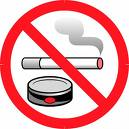
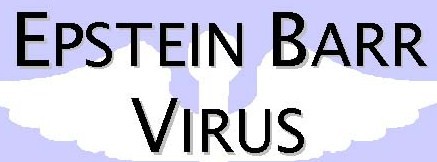
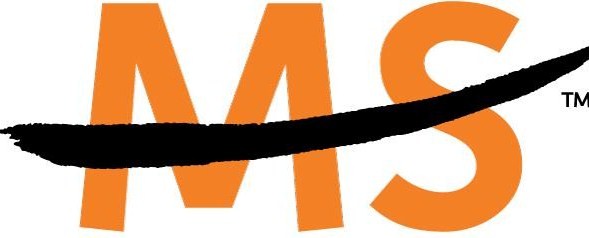
PAPER: Combined effects of smoking, anti-EBNA antibodies, and HLA-DRB1*1501 on multiple sclerosis risk, K. C. Simon ScD*, I. A.F. van der Mei PhD, K. L. Munger ScD, A. Ponsonby MD, PhD, J. Dickinson PhD, T. Dwyer MD, P. Sundström MD, PhD, and A. Ascherio MD, DrPH, Neurology 0: WNL.0b013e3181dad57ev1, ABSTRACT..
The existing risk factor is having high levels of antibodies to the Epstein-Barr virus (EBV), a common herpes virus that infects most people but is associated with multiple sclerosis (MS) in a small fraction of those who have it. Previous research has found a link between high levels of EBV antibodies and the disease, said the study's lead author, Kelly Claire Simon, a research associate at the Harvard School of Public Health.
Simon and her colleagues evaluated 442 people with MS and 865 healthy people without the disease who had been participants in three large studies: The Nurses' Health Study I/Nurses' Health Study II, the Tasmanian MS Study and the Swedish MS Study.
"Having the HLA DR15 risk gene (an immune system-related gene) did not appear to be affected by smoking or not," Simon said. But higher antibody levels of EBV did affect risk in those who had ever smoked, compared to those who had never smoked. "The increasing risk of MS associated with higher EBV antibody [levels] was stronger among ever-smokers than never-smokers," Simon said. Among the participants with higher levels of the EBV antibody, smokers were twice as likely to have MS as those who had never smoked. The association was not seen in those with lower antibody levels, however.
Exactly how the smoking enhances the link between the high antibody levels and MS risk isn't known, the researchers added. Previous research has found those already diagnosed with MS who smoke are at higher risk for getting the brain lesions associated with the disease, and for brain shrinkage.
Overall, a person's lifetime risk of getting MS is one in 200 for women and one in 600 for men in the United States. Those with the higher antibody levels in the study had up to a twofold increase in risk if they smoked, compared to nonsmokers, the Harvard researchers found.
Reference: Smoking May Boost MS Risk in Some by Kathleen Doheny, Health Day Reporter, 4/7/2010.
Related MS news briefs:
Smokers with multiple sclerosis (MS) show more brain atrophy..;
Teen smokers may be at a greater risk of Multiple Sclerosis (MS)..
Read more...


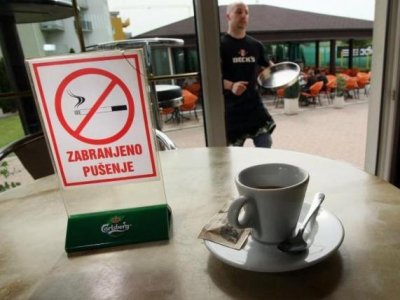

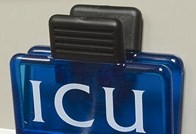 April 9, 2010 - FRIDAY, April 9 (HealthDay News) -- Nicotine withdrawal can create serious problems for smokers who have a medical condition that puts them in intensive care, according to a new study.
April 9, 2010 - FRIDAY, April 9 (HealthDay News) -- Nicotine withdrawal can create serious problems for smokers who have a medical condition that puts them in intensive care, according to a new study.


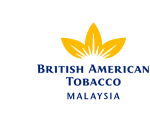 It was reported last year that British American Tobacco Malaysia, which has a 70% share of the domestic legal cigarette market, increased the price of its 20-stick packs by 30 sen and its 14-stick packs by 20 sen – the price of a 14-cigarette pack ranges from RM5.80 (1.82 USD) to RM6.90 (2.17 USD) while a 20-stick cigarette pack costs RM7.80 (2.45 USD) to RM9.30 (2.92 USD).
It was reported last year that British American Tobacco Malaysia, which has a 70% share of the domestic legal cigarette market, increased the price of its 20-stick packs by 30 sen and its 14-stick packs by 20 sen – the price of a 14-cigarette pack ranges from RM5.80 (1.82 USD) to RM6.90 (2.17 USD) while a 20-stick cigarette pack costs RM7.80 (2.45 USD) to RM9.30 (2.92 USD).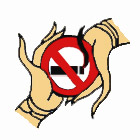 - Malaysia is a member of
- Malaysia is a member of 
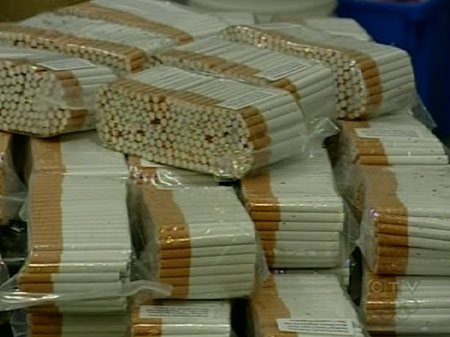
 Imperial Tobacco has labelled the illegal trade route the TransContraband Highway, and is calling on Ottawa to step up action against illegal cigarettes.
Imperial Tobacco has labelled the illegal trade route the TransContraband Highway, and is calling on Ottawa to step up action against illegal cigarettes.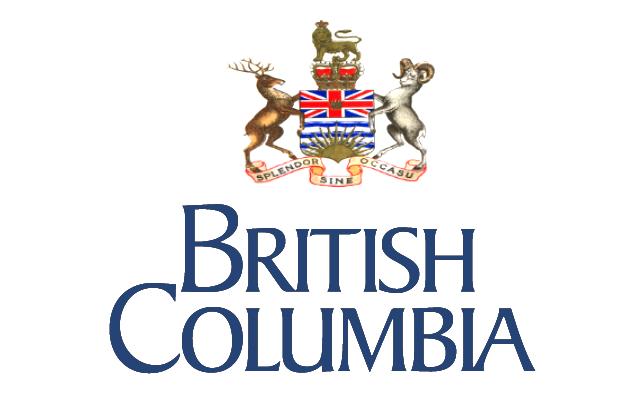
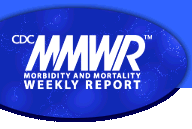 April 9, 2010 -
April 9, 2010 -


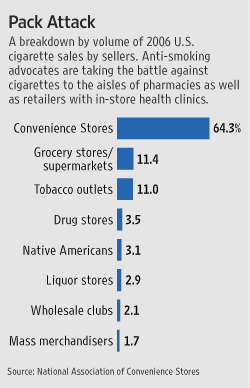


 April 8, 2010 - Smoking will be banned on all U.S. Navy submarines,
April 8, 2010 - Smoking will be banned on all U.S. Navy submarines, 
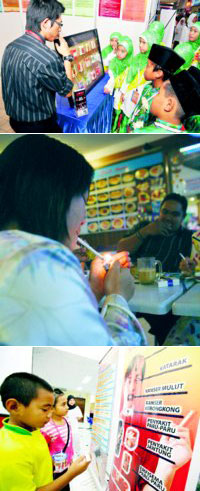



 April 8, 2010 - Cigarette makers such as Japan Tobacco Inc. (JTI) may have to put their plans to expand in India on hold after the country’s cabinet decided to bar foreign direct investment in cigarette manufacturing. “This would bring the policy in line with the administrative decision not to grant industrial license for cigarette manufacturing,” the government said in a note today.
April 8, 2010 - Cigarette makers such as Japan Tobacco Inc. (JTI) may have to put their plans to expand in India on hold after the country’s cabinet decided to bar foreign direct investment in cigarette manufacturing. “This would bring the policy in line with the administrative decision not to grant industrial license for cigarette manufacturing,” the government said in a note today.
 Viet Nam is a member of the
Viet Nam is a member of the 
 April 8, 2010 - Altria Group, Inc. (Altria) ) will host a live audio webcast on Wednesday, April 21, 2010 at 9:00 a.m. Eastern Time to discuss its 2010 first-quarter business results. The business results will be issued by means of a press release at approximately 7:00 a.m. Eastern Time the same day. The webcast can be accessed at
April 8, 2010 - Altria Group, Inc. (Altria) ) will host a live audio webcast on Wednesday, April 21, 2010 at 9:00 a.m. Eastern Time to discuss its 2010 first-quarter business results. The business results will be issued by means of a press release at approximately 7:00 a.m. Eastern Time the same day. The webcast can be accessed at 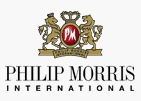

 April 7, 2010 - On August 1, 2005, North Dakota's smoke-free law went into effect. The law prohibits smoking in all enclosed areas of public places and places of employment, with some exceptions. (
April 7, 2010 - On August 1, 2005, North Dakota's smoke-free law went into effect. The law prohibits smoking in all enclosed areas of public places and places of employment, with some exceptions. ( April 7, 2010 - In a claim likely to cause consternation from Muslim smokers, a Dutch author has published a book that claims that pig blood is used to make cigarette filters. Pig 05049, written by Christien Meindertsma, lists 185 different ways that pigs’ body parts can be used, including in the manufacture of sweets, shampoo, bread, beer and bullets.
April 7, 2010 - In a claim likely to cause consternation from Muslim smokers, a Dutch author has published a book that claims that pig blood is used to make cigarette filters. Pig 05049, written by Christien Meindertsma, lists 185 different ways that pigs’ body parts can be used, including in the manufacture of sweets, shampoo, bread, beer and bullets. April 7, 2010 -
April 7, 2010 -
 April 7, 2010 - Kadima (political party) MK (Member of Knesset (Israeli Parliament)) Yoel Hasson tabled a private member’s bill on Monday that, if passed, would be the world’s first law barring the sale of tobacco products containing addictive substances such as nicotine, or other substances, such as menthol and ammonia, that make nicotine more addictive, The Jerusalem Post has learned.
April 7, 2010 - Kadima (political party) MK (Member of Knesset (Israeli Parliament)) Yoel Hasson tabled a private member’s bill on Monday that, if passed, would be the world’s first law barring the sale of tobacco products containing addictive substances such as nicotine, or other substances, such as menthol and ammonia, that make nicotine more addictive, The Jerusalem Post has learned.
 April 7, 2010 - In countries like Thailand, Brazil and Canada, graphic “picture-based health warnings” on cigarette packs have increased public knowledge on the ill-effects of smoking, as well as motivated an undisclosed number of smokers to quit the habit. (
April 7, 2010 - In countries like Thailand, Brazil and Canada, graphic “picture-based health warnings” on cigarette packs have increased public knowledge on the ill-effects of smoking, as well as motivated an undisclosed number of smokers to quit the habit. (
